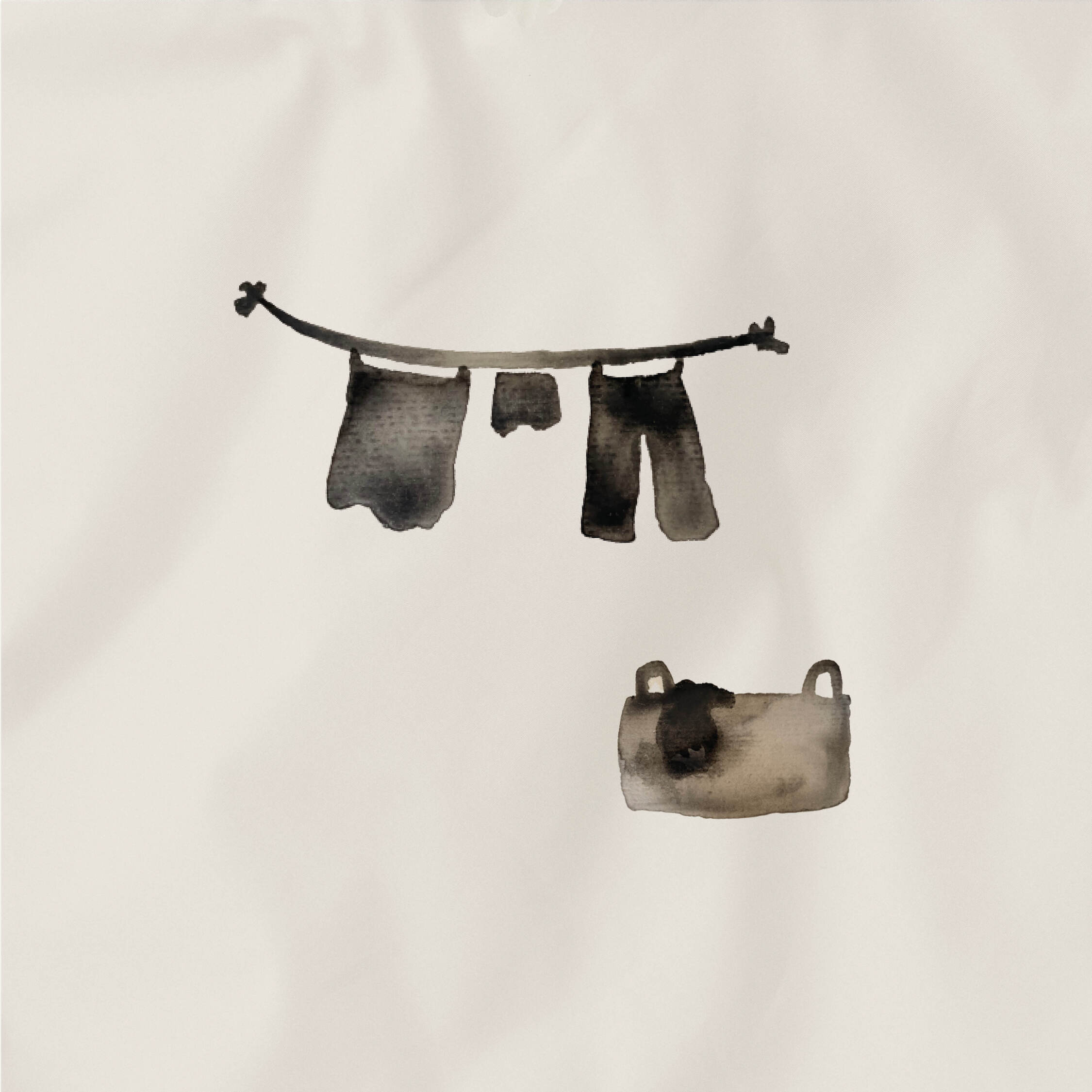Spring is upon us. And in best Humdakin style, we focus on spring cleaning and especially all the little things you can easily forget. One of the things we at Humdakin have learned that we often and perhaps are inattentive to is the washing of our textiles. Including how and how often the different types of textiles should be washed.
The combinations of revolutions, degrees and washing programs have endless options and we know that it is difficult to keep track of.
Read on below to find out how to wash and care for your textiles in the best possible way.
Towels:
New towels are great, but before using them, it's important to wash them first. A good tip is to soak them in cold water for at least 8 hours before washing. This opens and activates the fibers in the cotton, giving your new towels even better absorbency and extending their durability.
When washing your towels, we recommend washing at 60 degrees - to be sure to kill all bacteria. Wash your bath towels at least once a week and hand towels every other day. However, always follow the washing instructions on your towels and especially if your towels are not made of cotton.
Sheets and bedding:
Just like in clothing production, in many cases, different types of chemicals are added during production, for example to color, bleach or soften the textile. Therefore, we always recommend washing your new bedding before using it. This way you wash out any residual chemicals and avoid possible allergic reactions.
Just like our towels, we also recommend that you wash your bedding and sheets at 60 degrees. This is also to kill bacteria, including dust mites and fungal spores (read more here). But again, the main rule is to always follow the washing instructions on the product in question.
Tea towels and dishcloths:
The main purpose of tea towels and dishcloths is to dry and thus absorb water. Again, we therefore recommend soaking them for at least 8 hours, washing them in the washing machine and then tumble drying them for maximum absorbency. Since both your tea towel and your dishcloths are in contact with various surfaces and kitchen items every day, there are therefore also many bacteria that accumulate in this type of textiles. We therefore also recommend washing at a minimum of 60 degrees to kill bacteria. If the tea towel has been in contact with meat and/or chicken juice, we recommend washing at 95 degrees.
In addition, we also recommend that you change your dishcloth daily and tea towels should be changed twice a week.
Shower curtains:
Your shower curtain may be dirtier than you realize. It is therefore important that you remember to wash your shower curtain regularly. Your shower curtain is not like the other types of textiles in your home. The shower curtain is not specifically meant to be soft, but it's a plus if it is. Instead, your shower curtain is either made from or treated to be water-resistant. A shower curtain also doesn't need to have good absorbency and even though it's not in direct contact with the skin, it hides a lot of bacteria. In general, the bathroom is a bacteria-infested room - bacteria thrive exceptionally well in warm and humid environments.
Therefore, we do not necessarily recommend that a brand-new shower curtain is washed before use - the more often it is washed, the faster any impregnation will wear off.
Washing your shower curtain at 40 degrees is sufficient to remove stains and bacteria - especially if done regularly. We recommend that you wash your shower curtain at least 4 times a year. You can also wash your shower curtain together with towels. This allows the dirt to come out and makes for softer and more hygienic towels.
If it has been a long time since the last wash, we recommend that you wash your shower curtain with half the normal dosage of detergent. After washing, add a deciliter of household vinegar and wash the curtain again. If there are still stains, lime scale or ochre on the curtain, you can put the curtain in a tub with 8 liters of warm water with 250ml of kitchen salt. Remember that the salt must be dissolved and leave the curtain to soak for 4 hours. Hang it to dry afterwards.
We recommend that you hang your shower curtain to dry where it normally hangs in the shower cubicle. That way, it will already be there when you next take a shower.
Cover/cloth napkins:
Cloth napkins should not be thrown away like regular napkins. Instead, they should be washed after each use and reused. If they are made of cotton, you can also wash them with towels, for example. The rule of thumb here is that they should be washed at a minimum of 40 degrees and preferably more, as cotton opens up at 60 degrees and washes clean.
Avoid drying your cloth and placemats in the dryer and instead hang them up to dry on a drying rack. This will give you a smoother result.
Rather than skimping on the temperature during washing, skimp on the revolutions instead. This can also make for a smoother result - here we recommend low speed and spinning at a minimum of 6-800 revolutions.
For the most optimal and visually beautiful end result, we also recommend ironing your napkins before use.
Several models and newer models of both washing machines and dry tumblers also have 'tailor-made' programs for different types of textiles, which is why you can also choose these to get the most optimal washing and drying of all your textiles.
Also, always remember to follow the washing instructions for the textile in question.









